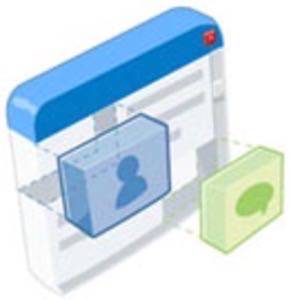The launch of the OpenSocial Foundation yesterday was probably more about preempting lawsuits than it is about anything else, but getting Yahoo!, Google and Newscorp all in the same room raised some eyebrows. It also raises some big questions. In fact, there may be more questions on the table about OpenSocial than answers.

Is OpenSocial for real? It it going to make a big impact on the web? Before asking all of that, here’s some thoughts on the nitty gritty as the platform moves forward.
What will Yahoo OpenSocial?
The definition of a social network gets looser every day, but what exactly is Yahoo! going to open up to OpenSocial? Maybe we’ll see OpenSocial apps jumping from MySpace to Yahoo! Answers and Yahoo! Finance, but more useful would be pulling data from Yahoo! properties for use on other networks. This would have been a great question to ask in yesterday’s conference call about the announcement.
Yahoo’s participation may mean a lot more smoke than fire. Hopefully they won’t pull a LinkedIn, launching a platform, promising openness but months later nothing but a closed development environment and… What is LinkedIn doing these days other than rolling out some features in-house?
Interoperability or Another Splintered Landscape?
Only a handful of OpenSocial “platforms,” or supporting social networks, have gone live so far and already each is “customizing” in ways that aren’t interoperable. Some of these networks have user data fields that just aren’t available on other networks, other are extending OpenSocial in ways that could be widely supported but aren’t part of the platform right now.
Company representatives said yesterday that porting an app from one network to another is today “a matter of hours instead of weeks or months” like it would be if it weren’t for OpenSocial. As more and more containers go live, though, it could end up taking weeks to make something truly interoperable. OpenSocial could very likely just end up being a network of sites that happen to give people permission to build apps instead of offering meaningful advantages for developers compared to stand-alone sites. Cross site-data portability would be the one remaining advantage, but we’re not seeing a lot of that implemented yet.
Who Will Use Data Portability?
If there are apps that allow users to draw their friend and activity data from one OpenSocial container to another, we haven’t seen them yet. That’s a big part of the value proposition for users, but despite the rhetoric it’s still a struggle for vendors. Likewise, the most successful apps so far have been little more than lightweight games – nothing that developers seem incentivized to make very sophisticated.
When do the Good Apps Show Up?
The MySpace rep yesterday said that good apps are on their way, it’s not just going to be a bunch of toys. That’s right, it was the MySpace rep that said that. We’ll see. So far most of the best apps are just games that aren’t annoying. Data portability has world changing potential, but it’s unclear that OpenSocial is going to be where we see it.
How does Microsoft feel about this?
Microsoft made it’s own interoperability announcement yesterday. Some people think that Microsoft probably isn’t very happy about Yahoo! teaming with Google and promising further openness. Microsoft could shut down or pull out from OpenSocial if it buys Yahoo!
Who’s More Open, Microsoft’s Deal or OpenSocial?
According to Josh Catone here at RWW, this is what Microsoft’s announcement yesterday means: “users on Facebook and Bebo will be able to add friends via their Windows Live address book. The functionality will be coming to Hi5, Tagged and LinkedIn in the next few months. Microsoft is calling this a “two-way street” and has launched a new site, invite2messenger.net, where users can invite friends from those networks to chat on Live Messenger.”
Google has been downright creepy in some of its openness strategies lately, but some people think Microsoft is emerging as more genuinely open. Microsoft isn’t participating in OpenSocial, but its defacto network of networks could end up providing more meaningful openness for users.
At What Point is Facebook Obliged to Join?
OpenSocial was ostensibly created to fight back against Facebook’s momentum. Facebook doesn’t have much incentive to join a fledgeling app network today, but at what point might they?
OpenSocial should be able to trounce the closed Facebook platform, but that’s only if it becomes a meaningful network of networks. Facebook is also focused on privacy controls, something that would take on a new level of complexity if it jumped into OpenSocial. Surely though there’s some breaking point whereupon Facebook would have to join everyone else. Perhaps they’ll go with ad-partner Microsoft instead.
What Happened to oAuth?
When OpenSocial was announced, we asked why the companies weren’t just using existing and emerging data portability standards and protocols. We were encouraged to learn that OpenSocial does offer support for the user authentication protocol oAuth. OAuth lets an app access your data on another network, with your permission but without itself asking you for your password. It’s really exciting – but we’re not seeing any OpenSocial app developers use it.
Will data portability standards get used in OpenSocial or is this network of networks just going to do its own thing? The vision of free flowing user information, with sophisticated and powerful granular controls, data-centric features and free love for all seems less central to OpenSocial every day.
It’s easy to feel cynical about OpenSocial, with so many giant, proprietary cooks in the kitchen. Do the big networks finally “get it” or are they just faking it and actually dragging their feet? The potential and promise are huge. So are the obstacles and remaining questions, though.
Marshall Kirkpatrick will be a guest on G4’s Attack of the Show tonight, discussing OpenSocial. If you’re a TV watcher, check it out and let us know what you think.










